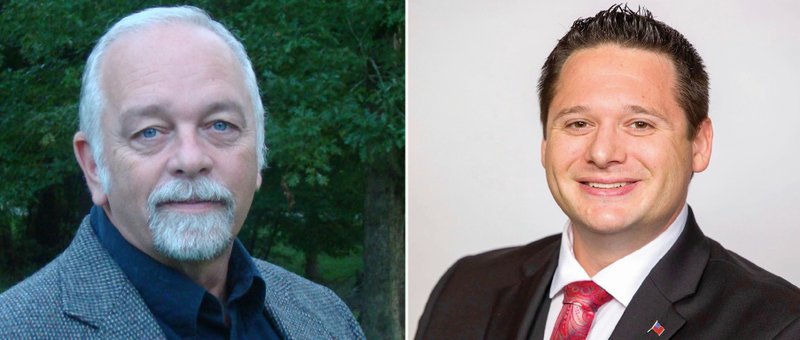On Jan. 1, Dan Whitfield of Bella Vista took leave from his weekend job delivering pizza to start collecting enough signatures of registered voters to allow him access to general election ballots as an independent candidate for U.S. Senate.
He had to submit 10,000 valid signatures to the secretary of state's office by May 1 to gain access to the November ballot, and was determined to make the most of his limited time to pursue a serious effort to unseat the Republican incumbent, Tom Cotton of Dardanelle. Whitfield also has a day job as an information-services intern at J.B. Hunt, is a full-time student at the University of Arkansas, Fayetteville, and is a husband and father.
But then he learned that state legislators had changed the law, requiring him to restart to comply with a rule limiting the signature-gathering period to 90 days.
He testified Wednesday in a federal courtroom that he enlisted the help of some 400 supporters across the state and, with petitions in hand, began attending events that were expected to draw big crowds, such as a firefighter union gathering, campaign rallies for U.S. Sen. Elizabeth Warren and Michael Bloomberg, both seeking the Democratic nomination for president, and the Little Rock marathon. He set up shop whenever he could outside the busy state revenue office, and also stayed busy updating his website, ReplaceTomCotton.com.
[CORONAVIRUS: Click here for our complete coverage » arkansasonline.com/coronavirus]
Then on March 12, as the coronavirus began invading the state, Gov. Asa Hutchinson declared a statewide emergency, prompting Arkansans to stay home and avoid crowds.
"March 12 was my last event," Whitfield told U.S. District Judge Kristine Baker during a trial held by teleconference. "When the governor declared an emergency, I had to cancel nine events."
Testifying from his home, he said he told his supporters to stop collecting signatures in public if they didn't feel safe. And he said that even a canvassing firm that his wife surprised him with, paying $1,250 to start gathering 1,000 signatures, had to call it quits after barely getting started.
Whitfield and Gary Fults of Hensley, who wants to run as an independent candidate for the state House of Representatives, District 27, which includes Bryant and East End, say in a May 1 lawsuit that the unpredictable pandemic, together with the state's overly strict rules for independent candidates, made it impossible for them to obtain access to the 2020 ballot, depriving them of their constitutional rights.
Baker held a nonjury trial Wednesday, taking under advisement the men's request to either reduce the number of signatures each is required to gather, extend the deadline for collecting the required number or install the men on the ballot after finding each made a sufficient effort to obtain access.
Whitfield turned in 6,514 signatures, and said he is confident he could have obtained 10,000 valid signatures if he'd had more time. Fults, who was required to turn in 286 valid signatures, turned in 128 to Secretary of State John Thurston's office on May 1. The number he needed was based on the number of people in the House district who voted in the last gubernatorial election.
Fults testified that he was sick the entire month of February and wasn't able to collect many signatures by the time the coronavirus hit and the state began shutting down, even though the governor never imposed a stay-at-home order. Fults said he paid $900 -- his entire campaign budget -- to mail petitions to people in his district who had voted in the Democratic primary, after obtaining a list from Thurston's office. He said he got 62 signatures that way, but couldn't afford more mail-outs.
Baker also heard from two other people who aren't plaintiffs in the lawsuit but sought ballot access as independent candidates, one successfully and one unsuccessfully.
Attorneys for Thurston argued that the state didn't cause the hardships that interfered with signature-gathering efforts and that there was no evidence presented to show the requirements for independent candidates are overly burdensome.
Metro on 05/29/2020

